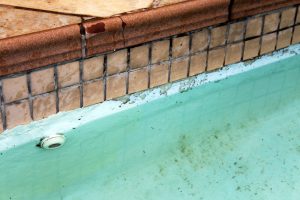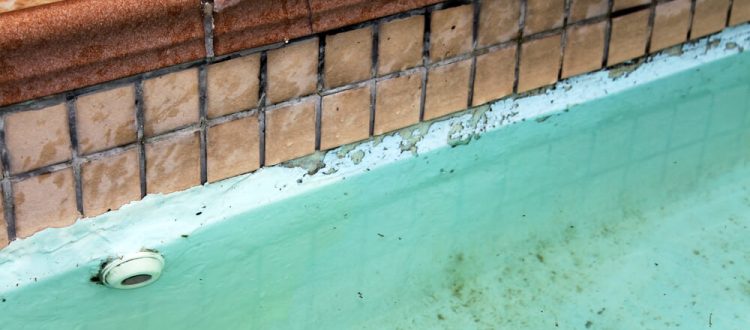Inground Pool Leak Detection
 Owning a pool is a significant investment that takes a great deal of responsibility to maintain. Enjoying it is the satisfaction you can get from having this luxury item on your property. To make sure it is kept in the best condition possible, it’s important to periodically perform inspections and look for potential inground pool leak detection warning signs that can help you discover any potential problems.
Owning a pool is a significant investment that takes a great deal of responsibility to maintain. Enjoying it is the satisfaction you can get from having this luxury item on your property. To make sure it is kept in the best condition possible, it’s important to periodically perform inspections and look for potential inground pool leak detection warning signs that can help you discover any potential problems.
Keeping water quality at a safe level for swimming is one of the responsibilities you’ll need to perform. It’s also essential to keep debris out of your pool. Unfortunately, over time, you may have trouble spots occur that cause your pool to form a small leak. If you ever feel like this has happened, the best option is to contact a professional.
Be sure to contact us by phone at (843) 655-5375 or via our contact page when you need professional assistance.
Natural Water Evaporation May Fool You
Maintaining a pool for the first time can be a little tricky if you haven’t handled the process regularly. Natural occurrences can fool even veterans pool owners. One of the challenges of inground pool leak detection is pinpointing natural water evaporation from irregular water loss.
If your pool is starting to lose its water level, you may begin to worry and think it has sprung a leak. Don’t be alarmed when this occurs as it can happen due to natural evaporation. Water evaporation can occur quickly and lower water levels fast in the appropriate conditions.
Several factors can play a role in reducing water in your pool. These can include the following:
– Crosswinds
– The temperature of the environment
– Water temperature
– Sunlight
– Your location
Understanding average evaporation rates can take some time to figure out if you are the owner of a new pool. The best way to know if you are running into trouble is by looking for a few telltale warning signs.
6 Inground Pool Leak Detection Warning Signs
Looking for potential warning signs is the best way that you can discover if you have any leaks forming in your inground pool. If you don’t see any of these potential clues, it’s probably just the natural environment at work. Narrowing down the potential of a leak can be done by looking for these occurrences:
– Difficulty maintaining pH levels: Excessive water loss can throw off pH levels and make it difficult to maintain.
– Soggy grass patches: Water may be leaking into the grassy areas around your pool or bubble up through the concrete.
– Noticeable cracks: Any cracks around your pool are potential areas where a leak can form.
– Sinking or swelling pool deck: Water may become trapped under your pool deck, which can cause swelling or sinking.
– Excessive water loss: Losing more than 1/4 inch per day is a strong warning sign of a leak.
– The need for additional water: Having to add more water more than once per week is another indicator of a problem.
When you find any of these warning signs occurring at your pool, be sure to contact us for professional leak detection assistance.
What Causes Pool Leaks?
If you find any inground pool leak detection warning signs, you may be wondering what can cause this type of leak. Unfortunately, warning signs may mean that there is an underlying issue that is causing the leak to occur. Here are a few potential causes that can cause a pool to form a hole.
– Railings or tiles with loose fittings: Water can seep into areas that have loose fittings and small holes.
– Natural wear and tear: Walls and flooring may start to wear down over time.
– Broken or damaged plumbing: This problem can cause terrible leaks, which result in pool deck swelling or sinking.
– Malfunctioning motors or pumps: Excessive air in pool lines may cause a problem when filling the pump basket.
Prepare for a Pool Leak Test
After you’ve determined that one or more of the inground pool leak detection warning signs has appeared, you’ll want to call us at (843) 655-5375 or through our contact page. We will be happy to assist you.
You can do a few things to prepare for your leak test, which will help make it more accurate. Taking these steps before your test is completed will help make it more effective:
– Keep your pool water clear: Cloudy water can make it difficult to locate the source of a leak. It’s best when your pool is free from algae.
– Clean and vacuum your pool: Having a clean pool makes it easier to discover leaks.
– Keep the pool water at a normal level: It’s easier to find a leak when the water level isn’t too low. Keep a normal level of water when possible.
Contact us today when you need assistance.

